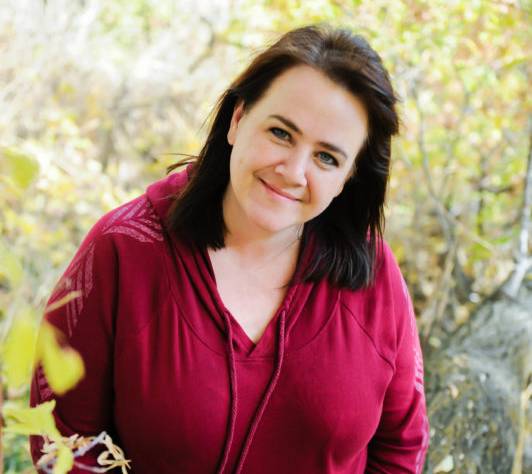It’s a misunderstood concept. Like most words it has multiple meanings. Websters defines forgive as: to cease to feel resentment against (an offender). The number two meaning states: to give up resentment of or claim requital for. Excuse, condone, pardon, absolve are all considered synonyms. It is easy to understand why this word can be polarizing in conversations. Being raised on the Christian ideals of forgiveness, turning the other cheek, and so on left me with unanswered questions about the nature of justice and accountability. How can you forgive and forget? Did I even want to forgive and forget? What about the truth? Or complicity? I went on a quest to understand the true nature of forgiveness and why it can be found in many of the worlds largest and most practiced religions.
- Christianity: In the Bible the word is used over one hundred times combined in both the Old Testament and New Testament.
- Confucianism: It might be considered similar to the virtue of Benevolence.
- Hinduism: The Bhagavad Gita considers forgiveness a divine quality and a part of the practice of self-purification and release of karmic debt.
- Islam: It states in the Quran, if you are merciful and we forgive other people then Allah will also have mercy on you and forgive you.
- Judaism: The Torah puts great emphasis on repentance, atonement and forgiveness.
- Buddhism: The concept of Buddhist compassion and loving-kindness is very close to the principle of forgiveness too.
- Jainism: In Jainism, they have a holy day called Kshamavani which translated means Forgiveness Day.
- Sikhism: Sikhs also hold forgiveness as an important virtue, and it doesn’t matter if the other person deserves it or not.
- Taoism: Though Taoism doesn’t have any specific references to forgiveness I found that its fundamental principles of non-duality embody what I consider the truth of forgiveness.
If all these ancient religions held forgiveness as an important virtue, what was I missing? I had to come up with my own definition. Forgiveness for me, is about making room for more. More what? The dichotomy of nature, the opposing truths, the light and the dark as inseparable elements of each other. Forgiveness is able to hold them all. To hold a grudge is to be caught in the duality of right and wrong, good and bad, offended and un-offended. To resent is to insist that what happened, shouldn’t have happened, regardless resisting reality always creates pain and suffering. I am not implying that duality is undesirable just that we can get caught in the binary friction of opposites. Forgiveness is a transcendent quality that holds two truths as equally valid without dismissing one or the other. At least that’s how I have interpreted it. Forgiveness offers clear sight, and the big picture view that accommodates mercy and judgment at the same time. Forgiveness is about complete understanding of the fullness of an experience.
Anger should be separated from the desire to punish or seek vengeance which is a reaction to injustice and cruelty and perpetuates both. i.e. (an eye for an eye and a tooth for a tooth). Anger on the other hand, is not resolved through forgiveness. Anger is a response to a violation. It is accurate information to help us learn to set boundaries and create healthy relationships. Anger naturally dissipates when correct action is taken to restore boundaries and establish a sense of safety. Once boundaries are intact, then an examination of the situation can occur. Then we can forgive.
Forgiveness is not absolution. It is not condoning behavior, or excusing wrongdoing. It does not extend mercy for its own sake, or avoid responsibility and bypass holding others to account. Forgiveness demands a huge capacity for discomfort and conflicting feelings and truths. Forgiveness says, and that too.
When confronted with two opposing truths our first instinct is to choose one or the other. The right one, the truth that feels too difficult to abandon gets to be the only truth. With forgiveness these two truths don’t have to cancel each other out.
Example:
My father abandoned me.
My father loved me.
My father abandoned me, and he loved me. How are both of these true? That is the question that forgiveness poses and requires us to investigate and find out. And in the above example, just because you can recognize that your father’s abandonment didn’t preclude him from loving you, doesn’t mean you should necessarily have a relationship with him. Forgiveness is a shift in perception and awareness. This allows you to act from a place of greater knowledge and understanding. You can forgive and still expect a person to pay for their crime, it’s just that you don’t need them to pay for you to feel free. You are no longer chained to the negative experience and/or people involved.
Imagine for yourself, two conflicting ideas and feelings you have about a situation. Then state the two truths. These contradictory statements can be resolved by integrating them into a single holistic sentence. And that too. Find the truth of both statements as one. They can live together within you if your heart expands, and your mind enlarges to accommodate them. Once this is done and you have examples of how both are true then consider how this might change your interactions. I have found that it increased my courage to hold others accountable. It made me more confident in my interactions because I wasn’t angry and the truth of my words held more authority. I could ask for what I needed without resisting reality. I was freer and wiser for it. The past remained the same. I didn’t forget. But the event and memories no longer crowded my inner space with insistence and frustration. Without all those painful memories taking up space within, I had room for other emotions and experiences.
Forgiveness is making room for more.


3 thoughts on “Forgiveness”
I LOVE your perspective on what I always thought was a confusing principle too! “Forgiveness is making room for more”…. I love that!!
Thank you Annette! I appreciate your comments.
I, too, have struggled with the world’s view of forgiveness, even to the point of refusing to use this word. I love this perspective as it feels like true freedom. Thank you for the work you do!